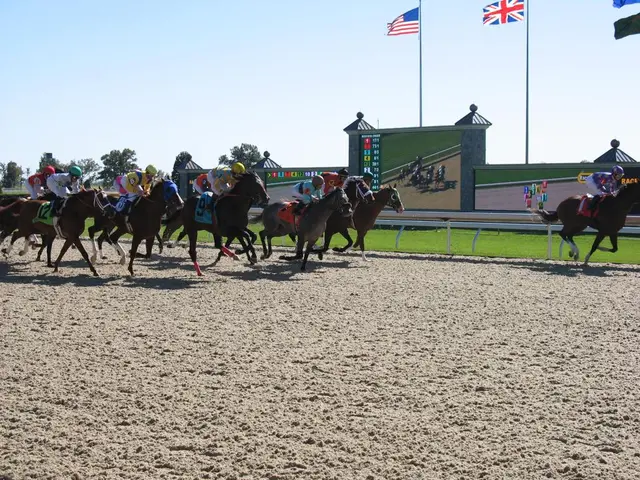Budget expansion is impossible for 15 Tour de France teams, sparking concerns about financial instability within cycling.
The world of professional cycling is facing a financial crisis, as many teams struggle to secure funding and compete in an increasingly expensive and competitive environment. This issue has been highlighted by several key factors, including skyrocketing budgets, a saturated sponsorship market, and the pressure to perform for sponsors.
One of the most significant challenges is the escalating budgets of top teams. Leading squads like UAE-Team Emirates reportedly operate on annual budgets around €55 million, making it difficult for mid-level and smaller teams to compete financially or meet sponsorship demands.
In addition, the sponsorship landscape is becoming increasingly competitive and expensive. Many teams are scrambling to secure seven-figure title sponsorships, and the high price tag for sponsorship—especially for prominent events like the Tour de France—deters smaller or less high-profile sponsors.
Sponsors expect strong sporting performances and visibility for their money. For example, Wagner-Bazin WB’s title sponsor expressed disappointment after a less successful season, putting pressure on the team to find new funds. This pressure is compounded by market fragmentation and structural changes, with mergers, closures, and title sponsor departures being common recently, reflecting instability and uncertainty that further complicate sponsorship acquisition.
The implications for financial sustainability are serious. Many domestic and ProTeams face uncertain futures without fresh funding. Teams unable to meet budget requirements risk folding or merging, reducing diversity and opportunity in professional cycling. The increase in budgets for top teams versus the struggles of smaller squads could lead to greater financial polarization, making the sport less competitive and less financially inclusive.
Industry insiders warn that if cycling continues to price out smaller participants and sponsors, it risks long-term harm and possibly "bankrupting itself" by over-inflating budgets beyond what the sponsorship market can sustainably support.
However, there are signs that some teams are adapting to the changing landscape. For instance, Decathlon, a French sports retail company, has bought the licence of AG2R La Mondiale and will be co-title sponsors from 2026. Tudor Pro Cycling, a new team, aims to be a WorldTour team by 2028.
Attempts to reform the sport's economic model and calendar continue apace, with the UCI currently exploring the possibility of implementing a budget cap. Raphael Meyer, the team manager of Tudor Pro Cycling, highlights the role of team managers in driving up the cost of running a team.
Despite these efforts, 15 out of the 23 teams are currently searching for new title sponsors, and teams like Arkéa-B&B Hotels are likely to close operations at the end of the season. Big multinational companies are investing substantial amounts in other sports, and cycling teams are surpassing those sports by a significant amount. However, teams like Alpecin-Deceuninck, the team of Mathieu van der Poel, can't find a replacement for the exiting Deceunick.
In summary, while big money flows into elite cycling, many teams struggle with the high costs and competitive sponsor market, threatening their financial viability and raising concerns about the sport’s sustainable growth and inclusivity. It remains to be seen whether the industry can address these challenges and ensure a bright future for professional cycling.
The financial crisis in professional cycling is exacerbated by the high costs associated with sports sponsorships, as teams aim to secure seven-figure deals and meet the demanding budgets of top teams.
The struggle for funding in professional cycling is further complicated by the fact that many teams are smaller and less high-profile, making them less attractive to sponsors in the increasingly competitive sponsorship market.




